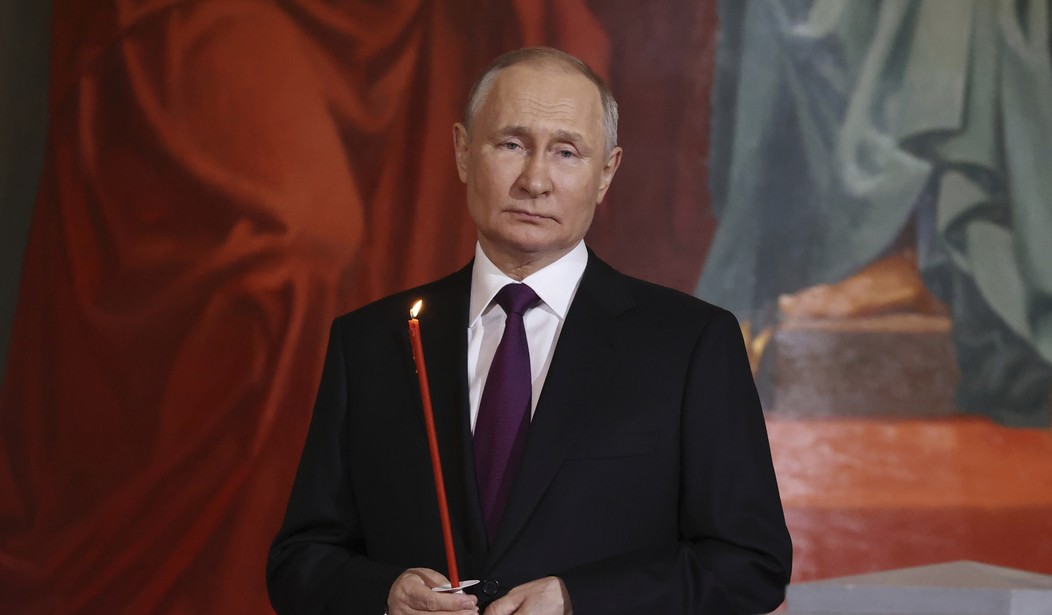Tucker Carlson: The Putin Interview and the History of Russia and Ukraine
On Thursday afternoon, Tucker Carlson's two-hour interview with Russian President Vladimir Putin dropped. Carlson traveled to Russia for the interview, as several American journalists, including Barbara Walters, have done in the past. I listened to the first 30-40 minutes of the interview and will comment later on the entire piece. Notably, Carlson is taking a fair amount of heat for doing this interview (Barbara Walters faced no similar backlash) mostly from the political left in the United States:
The first question Carlson asked Putin was a surprise; he asked if President Putin was concerned about a U.S. or NATO attack on Russia or if there may be an attack from Russia on NATO. Putin quickly disavowed the notion.
The first half-hour or so of the interview had to do with Putin’s reasons for the invasion of Ukraine.
Listening to Putin talk about Russia is an interesting experience for two reasons.
1) He has an extensive, encyclopedic knowledge of Russian history, a history that goes back well over a thousand years. When Carlson pressed him on his reasons for invading Ukraine, Putin launched into a soliloquy on how Novograd and Kyiv were the two social and cultural centers of the emerging Russia - Kyiv being, today, in Ukraine. Now, we can all arrive at our own opinions as to whether Putin’s explanations justify his invasion of Ukraine – they don’t, in my view – but you can’t say he decided without historical reasoning. He discussed over a thousand years of Russian history, obviously from memory, and cleanly laid out his reasoning.
2) The stark comparison between the knowledgeable, articulate Vladimir Putin and the stumbling, incoherent Joe Biden couldn't be more obvious. Vladimir Putin is, by his own lights, a patriot - a Russian patriot - and has his own reasons, based on Russian history, for seeking to reclaim what he sees as historically Russian territory. We can disagree with him. I do. But he is clearly knowledgeable and, more to the point, determined. He's no Joe Biden, especially in that, unlike Biden, he puts the interests of his own nation - Russia - ahead of other nations. That's what a leader should do.
At the beginning of the interview, Carlson stated that during Putin’s historical lessons, Tucker pointed out that at first he thought that Putin was indulging in a filibuster, but that on reflection, he realized Putin was instead explaining the long, complex history of Russia and its neighboring countries. That is a cogent assessment.
While Tucker Carlson followed his normal, relaxed conversational style, Vladimir Putin showed flashes of temper, at one point upbraiding Carlson for interrupting him; "I asked at the beginning of the interview if this was going to be a serious discussion or a show," implying that Carlson was making of the conversation a "show." By this, he presumably meant a collection of talking points, where Putin intended to deliver a long-winded discussion of Russian territorial history.
Putin also complained about the expansion of NATO into Eastern Europe; it is clearly a topic that he is not happy about. He points out that, during the Yeltsin era, Russian/American relations were very good, and he blamed the expansion of NATO into former Soviet-bloc nations like Poland (he emphasized Poland in particular) for souring American/Russian relations.
Tucker Carlson was not intimidated by the former KGB Colonel, and Putin clearly had come to the interview with his agenda firmly in mind and with points he intended to make about Ukraine, American/Russian relations, China, and a variety of other topics. He did so—bluntly.
Carlson's questions and Putin's answers make for interesting listening.
Ep. 73 The Vladimir Putin Interview pic.twitter.com/67YuZRkfLL
— Tucker Carlson (@TuckerCarlson) February 8, 2024





Post a Comment